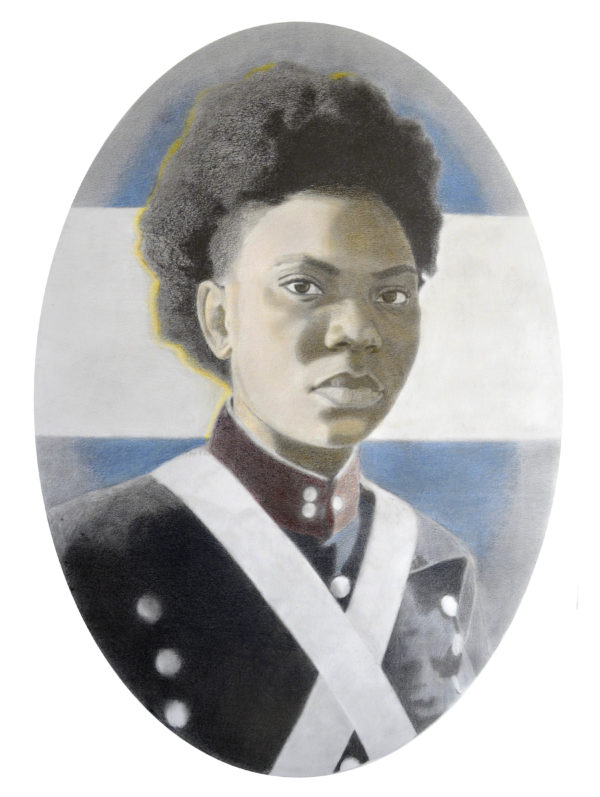Julia Cohen Ribeiro, 25, has been on a lifelong journey to connect and understand her cultural heritage. As an Afro-Argentinian, learning about her African-Heritage has been easier said than done in Argentina because of a long arduous effort to emphasize whiteness.
“In Brazil I was white but here I was Black, and people started telling me things making me see my Blackness all the time…sometimes telling me really strong things like, ‘I’m sorry you’re Black,’” Ribeiro said as she described her formative years. She says there is a general belief that Africans and darker-skinned people are associated with poverty and are less educated.
Ribeiro was born in Brazil and lived in the country until she was 11 years old when her family moved to Argentina. She admitted, before making the move to Argentina, she did not know she was Black, but an anti-Black sentiment was more pervasive in Argentina that was hard to ignore.
What Ribeiro experienced is a concerted effort by Argentina to diminish or outright erasure of African influence on the culture, a phenomenon found in other Latin American nations.
Harvard University professor of Afro-Latin American studies Alejandro de la Fuente describes the South American country as having a blind spot about its African history: “Argentina was much more of an African or an African descendent nation when it actually became a nation with independence in the early 19th century than it remembers itself to be.”
Rutgers University assistant professor of Latin American history Yesenia Barragan explained that Blacks were on the front lines during Aregentina’s fight for nationhood.
“Enslaved people and people of African descent served as soldiers in the war of independence — the war that began in 1806 and fought by local Argentine militias against the British — many [African soldiers] were rewarded with freedom, and there’s this freed Black population that forms within the region in the early 19th century,” Barragan said.
Despite helping fight the war, Argentine political leaders started targeting its Black population with explicit and racist policies also known as blanqueamiento or to “whiten” the population by implementing immigration quotas meant to limit people of African descent into countries meanwhile expanding access to people of European descent.
“They sought to erase the Afro-centric descendant people’s heritage and essentially whiten the population with European immigrants in the late 19th century and in the early 20th century,” said Barragan.
Erika Edwards, Ph.D., of University of North Carolina-Charlotte says in 1778 African descendants comprised 30 percent of Argentina’s 530,000 population but they have been on a steady decline over the past two centuries to just 0.37 percent in 2010, thanks to racist whitening policies instituted by the government during the 1800s and 1900s, gradual intermixing of races, and ambiguous racial terminology.
For example negro referring to Black people in the census during 1813-1832 was replaced with “pardo,” which refers to Black people and other people of color collectively.
Efforts to whiten the population was met with varying degrees of success, and Fuente says Argentina was more successful in its attempts. “Argentina is probably at the end of the spectrum in terms of its success in changing the demographic profile of its population.”
The whitening policies put in place decades ago are still felt today by continuing an anti-Black sentiment among the public. Ribeiro says you feel more validated if “you are of Spanish descent Argentinian than if you are of African descent”.
Efforts by Afro-Latin people to be recognized have been met with resistance over the years, but Afro-Latin social movements started gaining momentum in the 1980s and into the new millennium.
“Since the 1980s there has been a whole wave of mobilization, Afro-descendant mobilization in Latin America that’s really transformed how people in the region think about themselves, think about their country, and think about their history,” said Fuente.
The visibility they desired includes being counted in annual population counts akin to the U.S. Census and being recognized for their contributions made to society.
“These Afro-centric social movements forming really posed a threat to this history, this long and tortured history of anti-Blackness and racism in the country,” Barragan said.
For Ribeiro’s part, she’s contributing to the growing wave of Afro-centric social movements within Argentina.
While continuing her quest to understand her African ancestry and influence in Argentina, she is using what she learned in film school at the University of Buenos Aires to help change the narrative of Blackness with a documentary focusing on Maria Remedios del Valle, an Afro-Argentinian woman who fought in the Argentine War of Independence in the 1800s and was later revered as the ‘Mother of Argentina’.
“Maria Remedios del Valle was this Afro-Argentinian fighter who fought in the Independence Wars and was called ‘Mother of the Country’ by her peers, so we have a Black mother of our country, but we don’t even know her,” Ribeiro said.

Ribeiro hopes the documentary encourages Argentinians to better understand and appreciate African culture, so it is not pushed aside and erased because so much of the culture has African origins from the food to the dances, music and so much more.
More news from our partners:
‘System Uses Prisons to Throw People Away’: Man Sentenced to 1,823 Years in Prison to be Released
‘It’s On Life Support’: Last Black-Owned Bank In Chicago Struggles to Remain Open


